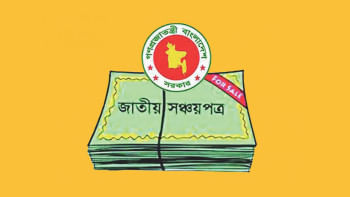Bangladesh in a new 'Great Game'
Apopular game in Central Asia, known as Buzkashi, is played between two rival horse mounted teams in which a headless goat carcass is the object of contest to be dragged into the goal. The team that can snatch the carcass from the other team and cross the goal line is the winner. The game is the national sport in Afghanistan, which itself has been like headless goat carcass caught between rival powers for two centuries, known in geopolitical term as the 'Great Game.'
The 'Great Game' around Afghanistan started in mid-nineteen century when Imperialist Russia in the North and Imperial British India in the South East were contesting to dominate so called buffer state.
This article, however, is not meant to repeat the part of the history that had dominated Central Asia for two centuries but to draw an analogy with our part of South Asia which seems to have become an extended field of renewed 'Great Game,' but in new a format. It is evident from the tussle between one superpower and one middle-power centering on Bangladesh's upcoming 10th Parliament election. The issue of an inclusive election has already caused sharp division within the country. Most Bangladeshis are bitterly divided over the conduct of the upcoming election that has drawn outside players into the field.
Violent protests have been initiated by the parties opposing election destined to be conducted under Prime Minister Sheikh Hasina with her party in power and the Awami league dominated parliament intact. Three years of verbal battle between two opposing political camps has taken a virulent turn since the election schedule was declared by the Election Commission (EC). The situation has become so vicious that it has brought regional and world powers almost face to face, opposing each other, on the modus of the election in which only the ruling party, supported by some smaller parties, is adamantly poised to go ahead leaving the largest opposition out of the election.
There has been overt and covert support from outside powers on each of the party's stand, i.e. holding an exclusive or inclusive election. The recent visit of the Indian foreign secretary and the endeavour of the US ambassador in Bangladesh along with other countries, including China, are indications enough that each of the extraterritorial major players has a different geo-political aim in this part of South Asia.
India for its own political and strategic reasons wants to see that the political power in Bangladesh is not dominated by so called 'rightwing religious' groups who, according to Indian political analysts, could pose a threat to the volatile parts of India including influencing religious extremism through minority community in India. The just concluded visit of Shujata Singh and the substance of her dialogue with Jatiyo Party (JP) chief, as revealed by Ershad, asserts the fact.
Indian concern is not only about one issue but a couple of other geo-strategic issues as well. Delhi feels that the China policy of the Awami League government has reduced Chinese influence in this region, especially military to military cooperation, which could grow into the realm of strategic cooperation. Delhi has always had an uneasy feeling of being surrounded by pro-China regimes in its periphery.
[cycloneslider id="stop-this-politics"]
On the other hand, US policy in the region has been recast around its persistent interest in the Indian Ocean, especially in the Bay of Bengal around Myanmar-Bangladesh coast. US policy in South Asia and elsewhere in the Asia-Pacific region is designed to check Chinese incursion in the Indian Ocean in general and in the Bay of Bengal in particular. Their political interest in Bangladesh is mainly to ensure that the third largest Muslim majority country is not pushed towards extremism in the name of liberal democracy. Perhaps this stems from the lessons learned in North Africa and the Middle East Arab Spring. China on the other hand has more of geo-strategic interest than geo-political interest.
To summarise, the present political crisis in Bangladesh makes us the helpless carcass, the object of 'Buzkashi' game in narrower terms and fresh field for 'new Great Game' in South Asian region. Will our politicians pause to give a serious thought on the issue and its consequences? We do not want to be the object of 'Buzkashi' or an arena of a new 'Great Game.' We want to preserve our pride that we fought and achieved freedom which was not gifted by the colonial power.
The writer is a column writer and former election commissioner.
E-mail: [email protected]

 For all latest news, follow The Daily Star's Google News channel.
For all latest news, follow The Daily Star's Google News channel. 



Comments